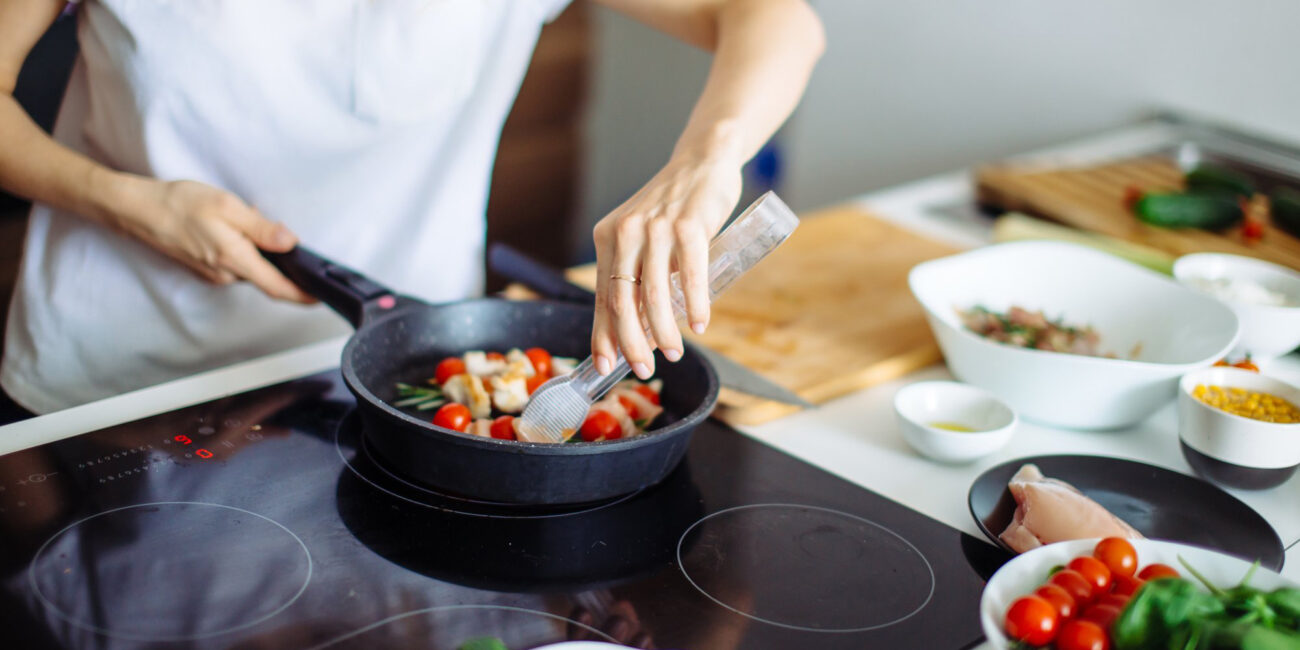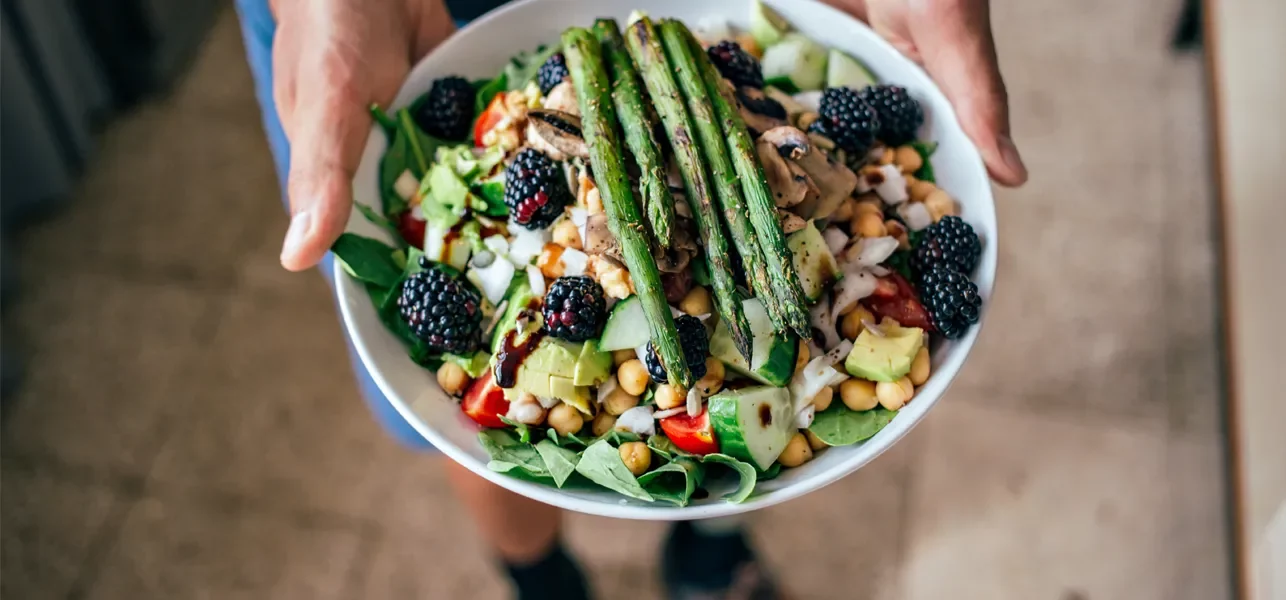A Nutrient-Dense 3000 Calorie Meal Plan for Better Health

What if someone told you that you could eat 3,000 calories a day to achieve your goal weight?
This might sound like a lot. But listen up.
People struggle not only with weight loss but with weight gain too.
“You should eat something,” “Are you sick?” – These are the questions they get asked.
Annoying, huh?
Calorie counting is not only applicable for those wishing to lose weight.
It’s the key to weight gain too.
So let’s dig into the weight gain struggles and the reasons why you should eat 3,000 calories daily.
3000-Calorie Meal Plan for Fueling Your Gains
Our licensed nutritionist prepared a easy-to-follow 7-day 3000 calorie meal plan for building muscle.
Day 1:
Breakfast: Scrambled eggs with cheese, whole grain toast with butter, and a glass of whole milk.
Snack: Apple slices with almond butter.
Lunch: Turkey and cheese sandwich on whole grain bread with a side of sweet potato fries.
Snack: Greek yogurt with honey and mixed nuts.
Dinner: Grilled chicken breast with roasted vegetables, brown rice, and a side salad with vinaigrette dressing.
Snack: Protein shake with almond milk, banana, and peanut butter.
Day 2:
Breakfast: Omelette with ham, cheese, and vegetables, whole grain toast with butter, and a glass of whole milk.
Snack: Trail mix with mixed nuts and dried fruit.
Lunch: Tuna salad with mixed greens, cherry tomatoes, and olive oil.
Snack: Protein bar and a banana.
Dinner: Beef stir-fry with mixed vegetables and brown rice.
Snack: Cottage cheese with mixed berries.
Day 3:
Breakfast: Protein pancake with peanut butter, whole milk, and a banana.
Snack: Hummus with baby carrots and cucumber slices.
Lunch: Grilled chicken Caesar salad with whole grain croutons.
Snack: Greek yogurt with honey and mixed nuts.
Dinner: Baked salmon with roasted asparagus and a side of quinoa.
Snack: Protein shake with almond milk, banana, and peanut butter.
Day 4:
Breakfast: Bagel with cream cheese, smoked salmon, and a glass of whole milk.
Snack: Sliced mango with a squeeze of lime juice.
Lunch: Beef and vegetable stir-fry with brown rice.
Snack: Protein bar and any fruit.
Dinner: Grilled pork chop with roasted vegetables, sweet potato mash, and a side salad with vinaigrette dressing.
Snack: Cottage cheese with mixed berries or banana and nuts.
Day 5:
Breakfast: Veggie omelette with spinach, mushrooms, and feta cheese, whole grain toast with butter, and a glass of whole milk.
Snack: Greek yogurt with honey and mixed nuts.
Lunch: Grilled chicken breast with mixed greens, cherry tomatoes, and a vinaigrette dressing.
Snack: Apple slices with almond butter.
Dinner: Baked sweet potato with chili con carne and a side salad with vinaigrette dressing.
Snack: Protein shake with almond milk, banana, and peanut butter.
Day 6:
Breakfast: Protein smoothie with spinach, banana, almond milk, and protein powder.
Snack: Trail mix with mixed nuts and dried fruit.
Lunch: Grilled chicken breast with mixed greens, cherry tomatoes, and a vinaigrette dressing.
Snack: Greek yogurt with honey and mixed nuts.
Dinner: Baked chicken breast with roasted vegetables, brown rice, and a side salad with vinaigrette dressing.
Snack: Cottage cheese with mixed berries or banana.
Day 7:
Breakfast: Breakfast burrito with scrambled eggs, cheese, sausage, salsa, and a glass of whole milk.
Snack: Hummus with baby carrots and cucumber slices.
Lunch: Turkey and cheese sandwich on whole grain bread with a side of sweet potato fries.
Snack: Protein bar and any fruit.
Dinner: Beef stir-fry with mixed vegetables and brown rice.
Snack: Greek yogurt with honey or Agave syrup and nuts.
Keep in mind that this is just a sample meal plan and has to be adjusted to meet your individual nutritional needs. Talk with a specialist before making any changes in your nutrition. Additionally, it’s important to stay active to achieve your fitness and weight gain goals.
3,000 Calories: Too Much or Too Little?
Your calorie intake depends on many factors. Some of these factors are:
Gender – Men need more calories per day compared to women. An average adult male needs about 2,500 calories, while an average adult woman requires around 2,000 calories per day to maintain current weight.
Age – Older people need fewer calories because they use less energy throughout the day compared to active young adults.
Height – Taller people need more calories to maintain their healthy BMI compared to shorter people.
Goal weight – If you want to lose weight, you need to burn more calories than you consume. But if someone is a dedicated athlete, for instance, they exercise and burn loads of calories daily. To maintain or gain muscle mass, they need to consume way more calories than an average person.
3,000 calories a day is a high-calorie diet and is recommended for those who want to gain weight, including athletes and very active or underweight people.

Advertisement
How to Know How Many Calories You Need per Day
If you want to count how many calories you should use in a day, you need to know your basal metabolic rate (BMR) and your activity factor.
Basal metabolic rate is the number of calories required to keep your body functioning (e.g., breathing, sleeping, heart beating) if you did nothing but rest for 24 hours.
Activity factor is all the calories burnt when your body is moving (e.g., walking, running, hiking). This can be tracked using a smartwatch or mobile workout/health app.
Add BMR and activity factor, and you will get your total daily energy expenditure (TDEE). This is an estimate of how many calories you burn on a regular day.
- If you wish to lose weight, you need to eat fewer calories than your TDEE number.
- If you want to gain some weight, you will need more calories than TDEE.
It’s relatively difficult to count this yourself. That’s why some gyms offer diagnostic tests.
But, if you are looking for a cheaper option, there are short quizzes you can take online. These programs do all the math for you and offer a personalized meal plan based on your answers.
Since 3,000 calories a day is recommended for people who want to gain weight, what are the main reasons anyone would want to do that?
Reasons to Gain Weight
We are so used to the diet culture and everyone trying to lose extra pounds that not enough attention is focused on people who want to gain weight.
So what are the main reasons behind weight gain?
#1 You might be underweight
People who are underweight face serious health issues, and it can drastically affect their everyday life.
If your BMI is lower than 18.5, you are underweight and need to reach a healthy body mass index to avoid developing serious, life-threatening conditions.
It is advised to see your doctor first before trying to drastically increase your caloric intake yourself.
If seeing a nutritionist is not an option for you, try one of the personalized meal plan apps that let you log your meals and count your calories and macros for you.

#2 You want to gain more muscle mass
You have probably seen how much athletes and bodybuilders eat every day.
Basically, their calorie intake is increased to gain more muscle mass.
Athletic people are well-educated about certain muscle groups and increase their performance.
However, when it comes to the kitchen business, they have very little understanding of what a balanced meal looks like.
In order to gain some lean muscle mass, you need to eat a balanced diet.
That’s where a personalized meal plan comes in handy too.
Having access to over 1,000 recipes with just a few taps will save you time searching the internet for new ideas.
Besides, all the calories and macros are automatically counted for you.
Sounds easy, right?
But first, let’s dig into the reasons why you might struggle to gain weight.
Why Is It So Hard to Gain Weight?
Putting on weight is even more difficult than losing it. But what is the reason behind it, and what factors could hinder your weight gain journey?

#1 Fast metabolism
Genetics plays an important role here.
If you have a very fast metabolism, chances are you won’t gain weight even if you eat loads of fast food or sweets that are overloaded with calories.
A fast metabolism means that you burn more calories even when you’re resting.
People with fast metabolism also need to consume more calories to maintain their current weight.
#2 Eating disorders
Having an eating disorder affects one’s physical and mental health.
Not every eating disorder is the same.
In some extreme cases, like anorexia nervosa, people can’t gain weight at all because their relationship with food is damaged.
Other conditions like bulimia can make it really hard for a person to keep enough calories down to maintain a healthy weight.
#3 Type 1 diabetes
Type 1 diabetes is an autoimmune condition when your body destroys pancreatic cells that produce insulin.
Insulin is the hormone responsible for glucose metabolism.
People with diabetes have excess blood glucose levels, which are then excreted in the urine. This can lead to unintentional weight loss.
Okay, so one of these might be the reason why you are struggling to gain weight.
Should you give up, though? Absolutely not. You want to be your healthiest self.
Not Every Extra Pound Is the Same
There are a few problems with the weight gain process, which are usually unhealthy.
We are talking about calories you get from sugary drinks, fast food, and sweets.
This will settle on your belly, causing cellulite and a skinny-fat appearance.
It doesn’t do any good for your health, and frankly, it just doesn’t look nice.
Another problem is that underweight people usually don’t have an appetite to eat so many calories per day.
But there are tricks to consume more calories without forcing yourself. We will explain this in a bit.
But for now – what are the principles of a 3,000-calorie diet everyone should know before starting this meal plan?
How Do You Follow a 3,000-Calorie Diet?
In order to gain weight in a healthy way, you want to avoid putting on extra fat and focus on lean muscle mass.
Healthy muscle mass is increased not only by exercising but by eating clean and counting your macros.
But how is this math done?

Carbohydrates
About 60% of your food intake comes from carbohydrates. 60% of 3,000 calories is 1,800.
1 gram of carbs equals 4 calories. This means that you need to consume 450g of carbohydrates per day.
Fats
30% of your calories should come from fats, which is equal to 900kcal. 1 gram of fats equals 9 calories. As a result, you need 100g of fats per day.
Protein
The last 10% is dedicated to protein. This equals 300 calories. 1 gram of protein equals 4 calories. This means you should consume 75g of protein every day if you are following a 3,000-calorie diet.
“Okay, cool, but this sounds overly complicated, and I don’t have time,” you might say.
Remember our previous suggestion.
There are apps designed to target your individual weight goals by giving you a detailed insight into food nutritional value.
And obviously, it counts your calories for you too.
Work smart, not hard.
Conclusion
In conclusion, following a 3000-calories meal plan can be a useful for those looking to gain weight and build muscle mass. However, keep in mind that every individual is different and you might need to adjust it to reach your weight gain goals.







Comments (0)